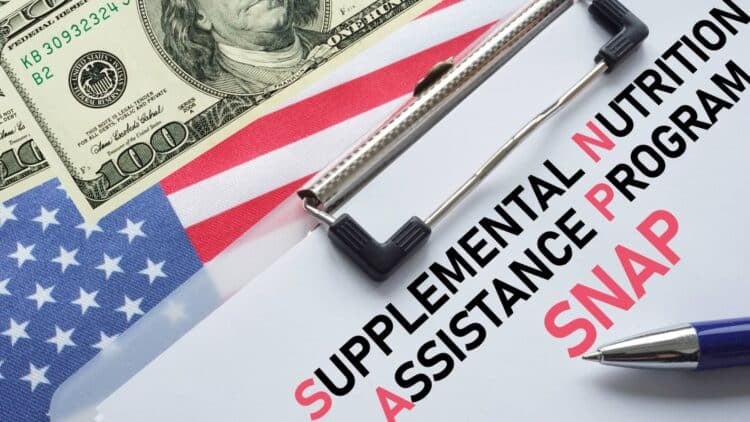Next Saturday, November 1, 2025, will be the deadline for a nationwide ultimatum that will affect the pantries of millions of Americans. The SNAP program is undergoing radical cuts that have never been seen before in years.
From now on, there are stricter federal guidelines, and not everyone will be able to access this food assistance program. The era of years of uninterrupted assistance is over. From this date forward, adults without dependents must prove (with facts and official documents) that they are actively working or training if they want to keep their monthly food assistance.
New eligibility requirements for SNAP
SNAP provides assistance to more than 42 million people in the United States to help them put food on the table. It is a direct subsidy for the grocery cart. This safety net was created with the expectation of helping the country combat hunger, but it has turned out to be a counterproductive crutch, according to some statisticians.
Marco, not all people who receive SNAP are equal under the law. Controversy has arisen when a group of people, ABAWDs (Able-Bodied Adults Without Dependents), have been identified as a sector of the population that should not need access to long-term SNAP assistance. According to the government, these people are able to work and do not have primary responsibilities for caring for young children.
From now on, ABAWDs are subject to a “time limit”: if they do not meet a work requirement, they can only receive benefits for a maximum of three months in three years. SNAP assistance will be a brief “boost” to help them get back on their feet in this economy, rather than a program they can depend on for years and not consider becoming self-sufficient.
New Age Limit
The upper age limit has been raised from 54 to 64. Adults between the ages of 55 and 64 were previously exempt, but now they must also meet the work requirements. On the other hand, the extension for parents has become stricter; whereas before, if you had a child under the age of 18, you were exempt, as of November 1, only parents with children under the age of 14 will be able to count them as dependents.
The temporary extensions that existed for vulnerable groups have also become very controversial. From now on, veterans, homeless people, and former youth who have been in the public foster care system will no longer have an automatic extension. From now on, almost everyone must meet the work requirements. There is no money left in the state coffers; now we all have to work.
New requirements to meet
However, this does not mean that we have to miraculously find a job that requires 80 hours of work per week. The government knows that it is very difficult to find a job in this labor market. That is why the requirements are quite reasonable: they only ask that you work a minimum of 80 hours per month.
This translates to about 20 hours per week of active participation. In addition, the USB is already quite flexible in how these 80 hours are fulfilled. If you really can’t find a part-time job that meets this requirement, they also accept volunteer hours. For example, there is unpaid work or bartering: services provided in exchange for goods or services. A classic example would be helping to maintain a building in exchange for a reduction in rent. If there is a written contract, you can submit it to the offices as documentation for SNAP.
On the other hand, participating in non-profit organizations, such as food banks, libraries, or parks, is classified as volunteer community service. Community service hours are verifiable and count toward the total. What is clear is that the government wants you to leave your home and interact with your community, even if it is not a paid job.
Finally, the government accepts that you are enrolled in a SNAP employment and training program or any other approved educational or training program. This includes college courses, technical certifications, or skills development programs. These courses must also total 80 hours per month.

